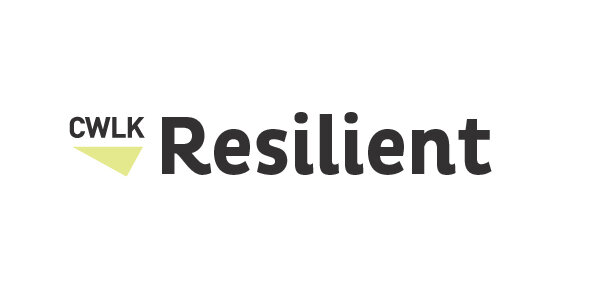Addiction and Brain Plasticity: Lessons from a backward bike.
It’s just like riding a bicycle. Once you learn, you never forget.
That old phrase about learning and riding a bicycle might be especially true when it comes to addiction and sobriety.
Addiction beefs up the brain’s learning systems, making us “over-learn” everything related to substance use. That’s because substances flood our brains with unnatural levels of dopamine, a brain chemical that helps us learn.
The unnatural flood of dopamine causes the drug-using neural pathways and habitual behaviors to become ingrained—much like riding a bicycle is a skill that once learned, is almost impossible to unlearn.
This may partially explain why people who have been sober for years can descend into the lowest depths of addiction in a relatively short period of time after resuming drinking or drug use.
So, can addiction ever be unlearned? Can sobriety be re-learned?
A fascinating video by Smarter Every Day may help answer these questions. The video looks at brain plasticity by using a backward bicycle.
A backward bicycle is like a regular bicycle in all but one important way. A set of gears causes the handlebars to turn the wheel in the opposite of the expected direction. So, if you turn the handlebars to the right, the wheel turns to the left and vice versa.
As the video comically demonstrates, it is impossible for established riders to compensate for the change. Even when offered $200 dollars to ride the bike a few feet, riders tip and wobble uncontrollably. They simply cannot ride the bike.
It turns out that the neural pathways and habitual behaviors associated with Bicycle riding are so ingrained, that it took the video’s creator 8 months to unlearn how to ride a bicycle and learn to ride the backward bike.
So what does this tell us about addiction and sobriety? By analogy, addiction IS like riding a bicycle. The brain learns to navigate life while using substances. Behaviors associated with substance use become strengthened and habitual. The addict does them nearly automatically—just like a bike rider manages the complex physics of bike riding without consciously thinking about it.
When using substances becomes a deep-seated pattern, life without substances can be awkward and unintuitive by contrast.
But as the video’s creator demonstrates, new patterns can be learned.
I recently showed the backward bike video to some groups of recovering addicts. I asked them to help me identify what new and potentially awkward things need to be learned in sobriety. Below are their responses.
Motivation and rewards. “I drank or took drugs to get going and motivate myself. Drugs and alcohol were also my rewards for completing a task. In sobriety, I needed to learn to get motivated without drugs and alcohol.
Communication. Alcohol and drugs were my social lubricant and the focus of my social life. I feel awkward and self-conscious in social situations when sober. I need to learn how to talk to people, manage my social anxiety, and ask for help when I need it.
Establishing boundaries. Relationships with drug and alcohol-using friends and family were my norm. I am now having to learn how to say, “No” politely, but firmly. I have to learn how to manage when people ask me for help, invite me to party, or say, “You think you are better than me.”
Reconnecting with family and loved ones. My relationships were strained and some fractured while I was using. I want to reconnect, but people still don’t trust me. I need to learn how to fix broken relationships and be patient when others aren't ready to trust me or reconnect with me.
Coping with and experiencing emotions. Drugs and alcohol suppressed my emotions for years. I used them to numb myself or block out negative feelings and memories. Now, strong emotions flood over me. I need to learn how to cope with strong emotions without drugs and alcohol to numb me.
Coming out of isolation. The farther my addiction progressed, the more isolated I got. Even in recovery, it is hard for me to come out of my shell and reengage in work, family, and church life. I can still get caught up in negative thinking and I find it difficult to reach out to others. I need to learn to have community and friendships again.
Asking for things and giving back. In my addiction, I manipulated people and didn’t have a healthy give-and-take with others. I panhandled or begged for odd jobs. Now I have to learn how to ask for help appropriately and how to be there for others when they need something.
Build a new identity. It’s like I don’t know who I am if I am not using. I have to start over from scratch by forgiving myself and being honest with myself. I need to learn what I like to do, what my talents are, and how to present myself to others.
Developing routines. My life was chaos. I didn’t sleep, eat, work, or do anything on a regular schedule. Now, I have to learn how to work, eat, rest, and recreate in a consistent and repeatable way.
Keep an even keel. In my addiction, I was bouncing back and forth from extreme to extreme. I was tremendously anxious or passed out. I was incredibly active or unable to get out of bed. I was partying or hung over. Sober life can feel flat and dull. I need to learn how to be content with the middle ground rather than the extremes.
Problem-solving. My answer to everything was to drink. I would wallow in self-pity or turn to substances for relief. I would sometimes get very drunk to procrastinate rather than deal with a problem. Paperwork didn’t get done. Legal issues got ignored. And responsibilities got neglected. Now when I face a problem, I have to call my friends or use the tools I am learning in recovery.
Here is the video
